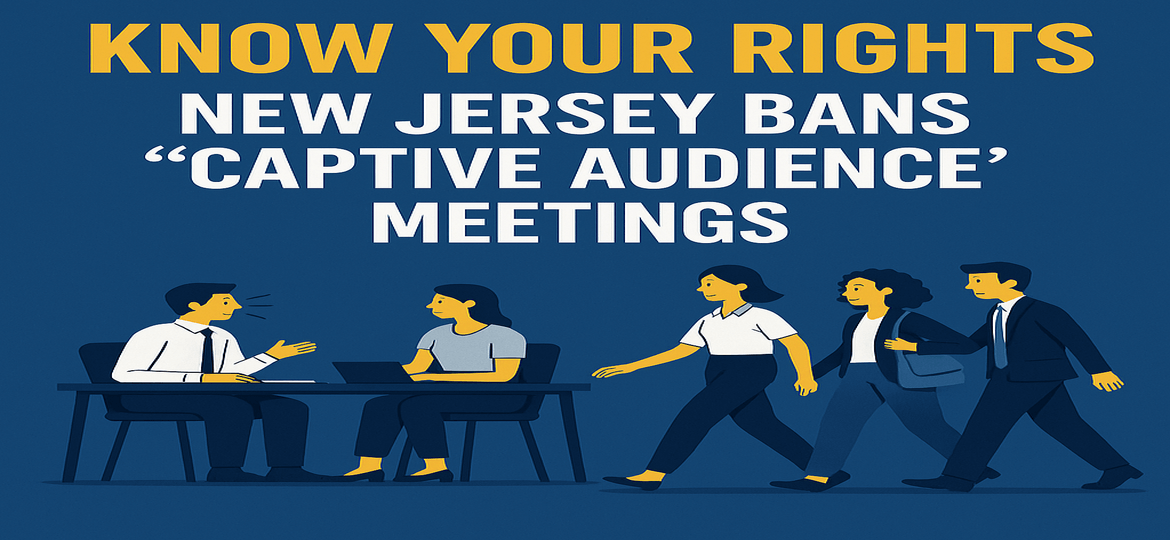
Stronger Protections for Employee Rights in the Workplace
In September 2025, New Jersey passed a landmark law (A4429/S3302) banning mandatory “captive audience” meetings. For decades, employers used these meetings to pressure workers into listening to political, religious, or anti-union messages—often during organizing campaigns.
With this new law, workers and unions across the state now have stronger protections and more freedom to exercise their rights without fear of retaliation.
🔎 What Are “Captive Audience” Meetings?
- Employers could previously force employees to attend meetings where management delivered their views on politics, religion, or union activity.
- Workers who skipped or disagreed risked being disciplined—or even fired.
- These meetings were particularly common when employees were considering unionizing, creating an unfair imbalance of power.
Now, that practice is illegal in New Jersey.
⚖️ What the Law Guarantees Workers
- Freedom of choice: You can say “no” to attending meetings about politics, religion, or unions.
- Union protections: Employers can no longer use mandatory meetings to discourage workers from organizing.
- Anti-retaliation rights: If your employer punishes you for not attending, you have legal protections to fight back.
👩🏭 Why This Matters for Employees and Unions
- More power for workers: You can focus on your job without being pressured into attending meetings that don’t benefit you.
- Fairer organizing campaigns: Union drives can now move forward without management pulling workers into captive meetings designed to spread fear.
- Safer speaking out: Workers can assert their rights with greater confidence, knowing state law is on their side.
This law is part of a broader trend in New Jersey to expand protections for working people and level the playing field in the workplace.
✅ What Workers Should Do if Faced with Retaliation
- Document what happened – note the date, time, and details of the meeting or retaliation.
- Keep copies of emails or notices about mandatory meetings.
- Talk to your union representative if you have one.
- Seek legal advice quickly—deadlines for filing complaints can be short.
How Zirrith Law Supports Workers and Unions
At Zirrith Law, we fight for workers, unions, and associations across New Jersey. If your employer tries to retaliate against you for exercising your rights under this new law—or if you want guidance on union matters—our attorneys are ready to stand with you.
📞 Call us today at 732 – 521 – 5900
📩 Or contact us online to schedule a confidential consultation.

